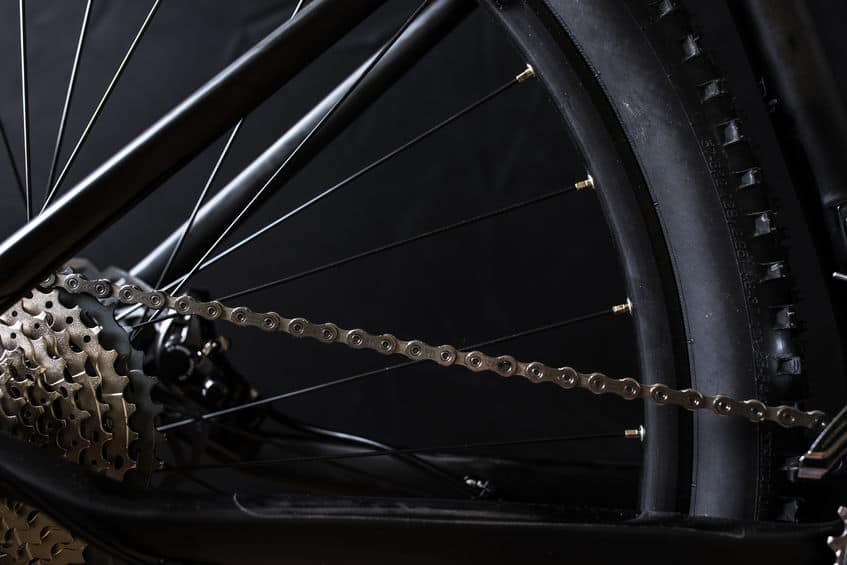There is a lot of debate in the mountain biking world between the advocates of carbon bikes and the ones who instead recommend alloy bikes, with each side having legitimate reasons why they prefer the one they do. However, the greater number of mountain bikers tend to be lined up on the side of the carbon bikes.
This is because carbon mountain bikes have a number of advantages that alloy mountain bikes do not have. While being lighter in weight is the most common advantage listed, others include the slight flexibility and shock absorption that they can help with.
With so many new advancements in the mountain bike realm – even the beginning of 3-D printing of bike frames – it can sometimes be hard to see if the new improvements are necessarily better than the tried and true designs. In the case of carbon fiber mountain bikes, however, there is little doubt. So perhaps a closer look is warranted to see just how many advantages there are and what some of the differences might be between the two options.
Carbon Fiber Mountain Bikes
While you probably already knew that carbon fiber is a unique compound that is manufactured in a specific way, what you may not have known is that carbon fiber is actually a kind of fiberglass. The main differences are that the fibers are made up of a mix of primarily carbon and that it uses a stronger, more advanced form of weaving to make it.
In order for it to be molded into a certain shape and then stay in that shape, the fibers are soaked in a specifically designed kind of glue. All of this put together allows a mountain bike that is made from carbon fiber to have some ability to flex on impact. This can noticeably aid the suspensions on the bike by making it so that the actual frame of the bike itself is absorbing some the impact, and it especially cuts down on the amount of vibrations that the rider will feel.

Any help with the amount of shock that your mountain bike can absorb will help to keep your tires more on the ground. This is always an advantage in terms of the grip that your tires can have on the trail. The better grip your tires have, the more traction you will get, and therefore the faster you will be able to go. Better traction will also help you should you need to make any turns while in the bumpy area of a trail.
As mentioned, carbon fiber also weighs less than practically any other kind of bike out there. The frame of the bike is the part that accounts for the largest percentage of the weight, so cutting down on the weight here can make a huge difference in the total weight of any mountain bike.
And, of course, the less your bike weighs, the faster you can be. This is especially true when going up steep hills where every ounce of weight is more weight that you will have to pedal uphill with. This is one of the main reasons why having less weight on your mountain bike can make you a much faster biker.
Perhaps the main reason why more mountain bikers do not go with carbon fiber mountain bikes is because these tend to be more expensive. Often this kind of mountain bike is a lot more expensive than the other kinds, and this can put them altogether out of the price range of a mountain biker who might be on a budget as well as more casual bikers who don’t want to spend that much money on something that is just a hobby for them.
The other main reason why more bikers do not have carbon mountain bikes, and the main reason why mountain bikers prefer aluminum alloy bikes, is because carbon is less sturdy than aluminum is. This means that if you were to crash your mountain bike into anything that you would be much more likely to bend the frame, or at least cause more damage to your bike, than you would if your bike was made out of aluminum or something sturdier.
Mountain bikes that are made out of carbon also tend to get more dings and notches in them due to flying rocks and other things. These not only look bad, but if they are deep enough they can eventually make the frame more likely to break in those places if you were to crash or land a really big jump.
Aluminum Alloy Mountain Bikes
Aluminum has been around for longer, and this being the case it can sometimes be found in more of the old and trusted type of frame designs. Mountain bikes that are made out of this are made to last you for years, even over rugged terrain and through those downhill races that are always tough on your bike. And, should you be prone to crashing into things for any reason, this bike can handle the wear and tear that comes along with that too.
However, this durability comes at a price. In this case the price is not monetary; it is the price of the added weight that is put on the bike’s frame. This weight will be pulling you back downhill as you are trying to go uphill, taking you longer to get there and making you spend more energy than you otherwise would have had to spend.
Even though aluminum alloy mountain bike frames are undoubtedly much sturdier and better at retaining their shape, this also means that they have less “give” to them. The result of this is that when you do hit small rocks and obstacles in your path that the frame of your bike will vibrate more than a carbon fiber frame would since it will not dampen any of the vibrations at all.
However, alloy is still a common thing for mountain bikes to be made off, not only for the reasonable prices, but because this can genuinely be the better option at times. If you are particularly tall or just plain big, then you will need a mountain bike that can support your weight without being likely to bend on impact due to having too much weight putting pressure on it.
Also, if you are a downhill mountain bike racer, then you know the importance of having a bike that can really handle a lot of hard impacts due to large drops and the other downhill features that you face on a regular basis and at high speeds. In this case the slight bit of comfort that carbon might give you is by far a secondary consideration, since any bending of the frame here can result in a catastrophic crash and can get you terribly injured because of it.
Conclusion
While there are many reasons why getting a carbon fiber mountain bike is preferable to getting an aluminum ally mountain bike, as you can see there are a few situations for which an alloy bike might be the better choice for you. However, the rest of the time it is usually far better to stick with carbon. And if you are in doubt about which one is the best option for you, then you should probably go with carbon.
If you do decide to go with getting a carbon fiber mountain bike, it is very important to know what the weave of the carbon is when looking at the different options. The different grades of weaves will really affect how long the bike will last and how well it will stand up when you ride it on the rough trails.
Yes, this weave will also affect price and will be more expensive most of the time, but you can still find some good grades that are not too much more expensive than the lower quality ones are. You should always value your safety and that of the people around you more than you should worry about how much something will cost.

